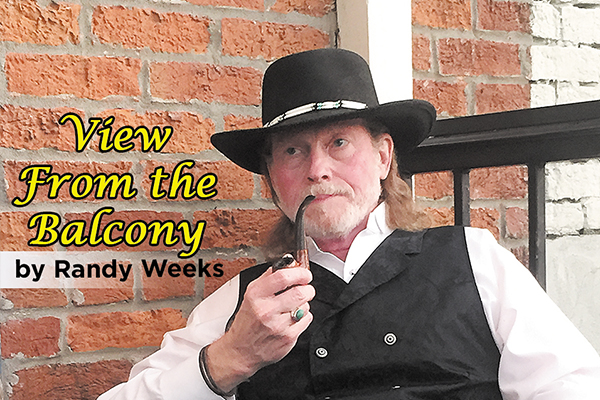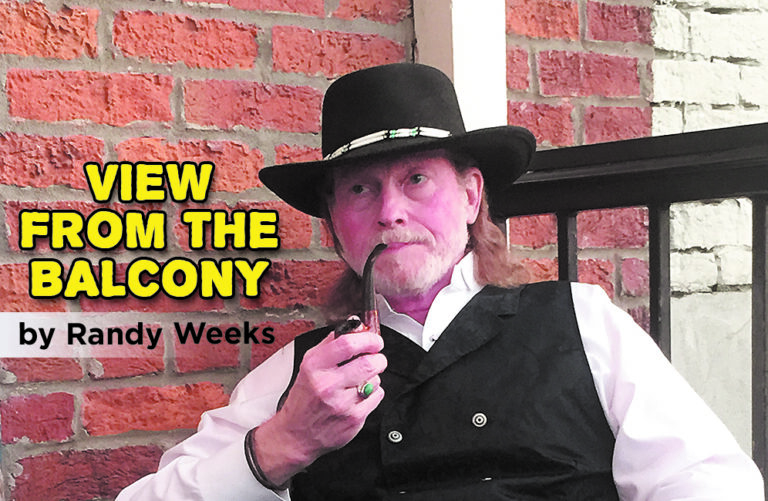

(February 19, 2022) Last night, or perhaps it was in the wee hours of this morning, I dreamt of Leonard Cohen. We were in his simple Mediterranean white stucco home on the Greek isle of Hydra. Leonard—he insisted that I call him by his given name—was seated at his plain, white, small breakfast table in his kitchen, a fine china teapot and a cup of tea to his left, and a Greek cigarette whose name I cannot recall resting on a matching china saucer to his right.
Through the curtainless open window over Leonard’s left shoulder I could see dozens of white houses rising on the hills and sinking into the valleys. The sky above was a soft blue with a few horse tail clouds. The water the sky rested upon was crystalline, with not one hint of a ripple, though a light breeze was blowing. A third person who must have brought me there was present, but I could not tell you who that was—not even their race or gender—for they lingered in my peripheral vision to my left the entire time. My best guess is that it was Leonard’s son, Adam, who had brought me to him, but I cannot be certain.
Leonard was not wearing one of his signature Fedoras, for a true gentleman, with rare exception, does not wear a hat indoors, even in his own home. His hair was silver with only the slightest hint of the black that had helped build his reputation as a ladies’ man, a tale he insisted was more legend than truth.
Leonard sat comfortably in his old wooden straight-backed chair and was smiling at me in the same way as one might upon spending time with an old friend of one’s youth that had not been seen for decades. The greetings and small talk out of the way, he seemed to relax into the savoring of the sweetness of the presence of a new friend, and I cherished his being.
Leonard asked me to sit and offered a cup of tea, but I did not feel worthy. While he clearly did not judge me as I did myself, he honored my reverence. We did not talk of much, yet we spoke of all by reciting poetry to each other.
He quoted Federico Garcia Lorca, François Villon, and the King James Bible, of which I am well-versed. Yet, even with my seminary education, Leonard, who was Jewish, was much more adept at plucking diamonds from the words of Jesus than was I. I quoted from Paul’s writings and we laughed at the ridiculousness of some of the things Paul said, presumably after the scales fell from his eyes. It was clear that we were both suspicious of that.
I quoted Wordsworth and Shakespeare and T.S. Eliot and Auden. I even slipped in a line or two from my own work, which he immediately recognized. He shook his long right index finger at me and, with a sly wink and an impish grin said, “I saw what you did there.”
Every now and then I sprinkled in some of my favorite lines from his songs that had come late in life for me but had fiercely pierced my heart and soul. “I’m leaving the table. I’m out of the game. I don’t know the people in your picture frame.” “No one to follow and nothing to teach, except that the goal falls short of the reach.” “That’s how broken I would be, what my life would seem to be, if I didn’t have your love to make it real.”
Leonard lowered his eyes. An appreciative and humble smile, barely perceptible, drifted across his face.
It was time for me to go. Leonard didn’t have to say so. But it wasn’t a dismissal, rather a benediction. Walking out the door I turned and left him with his words that perhaps had touched me deeper than any others. “Say ‘Goodbye’ to Alexandra leaving, and say ‘Goodbye’ to Alexandra lost.”
As he turned to look out his window, a tear ran down Leonard’s right cheek. Thanksgiving rivers flowed from mine.
…and that’s the view from The Balcony.
Randy Weeks is a Licensed Professional Counselor, a Certified Shamanic Life Coach, an ordained minister, a singer-songwriter, and an actor. Leonard Cohen’s words have carried him through many a dark moment. Randy may be reached at randallsweeks@gmail.com.



